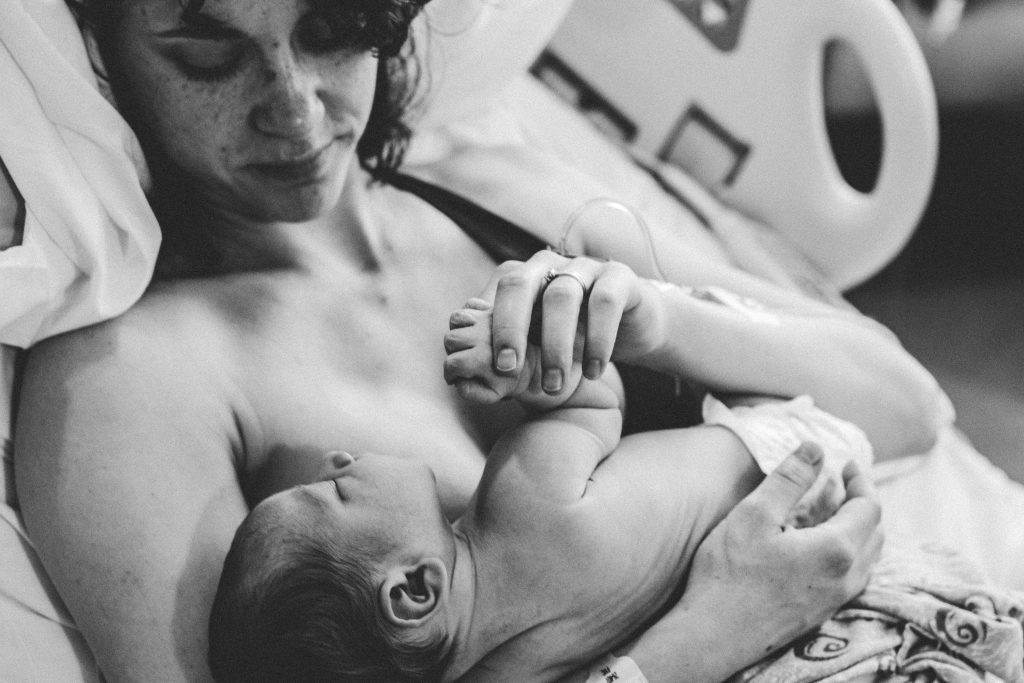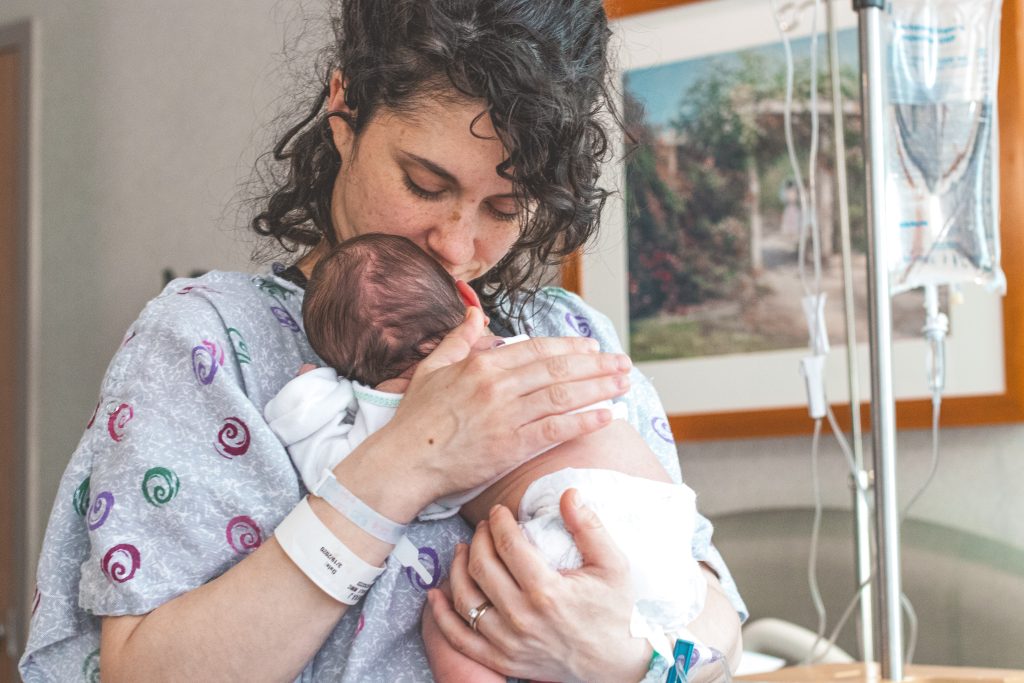Discover the potential link between postpartum depression, hormonal changes, and the perception of back pain.
Can Postpartum Depression or Hormonal Changes Contribute to Perceived Back Pain?

Have you ever wondered why new mothers sometimes experience back pain? It turns out that postpartum depression and hormonal changes could be partial culprits behind this discomfort. In this article, we’ll delve into the fascinating connection between postpartum depression, hormonal fluctuations, and that lingering back pain. So let’s dive in and explore what these new moms are going through.
Understanding Postpartum Depression
Before we jump into the physical aspects, let’s first shine a light on postpartum depression. This condition affects some women after childbirth and can cause a range of emotional and physical symptoms. The sudden hormonal shifts in the body coupled with the challenges of motherhood can contribute to feelings of sadness, fatigue, and even anxiety.
Postpartum depression is a complex condition that can impact a woman’s overall well-being. It is important to recognize that it is not a sign of weakness or a character flaw, but rather a medical condition that requires attention and support.
During this period, new mothers may experience a rollercoaster of emotions, ranging from joy and excitement to feelings of overwhelming sadness and despair. It is crucial for friends, family, and healthcare professionals to provide a supportive and understanding environment for women experiencing postpartum depression.
Symptoms of Postpartum Depression
Spotting postpartum depression can be tricky, as it often manifests differently in each individual. However, common signs include persistent feelings of sadness, difficulty bonding with the baby, changes in appetite or sleep patterns, and a lack of interest in activities once enjoyed. These symptoms can range from mild to severe, and it’s essential to seek support from healthcare professionals if they persist.
In addition to these emotional symptoms, postpartum depression can also have physical manifestations. Some women may experience headaches, dizziness, and even digestive issues. These physical symptoms can further exacerbate the emotional distress, making it crucial to address both the mental and physical aspects of postpartum depression.
The Link Between Postpartum Depression and Physical Pain
Now, let’s delve into the fascinating link between postpartum depression and physical pain, particularly back pain. Studies have shown that prolonged mental distress can contribute to an increased perception of physical pain. This means that the emotional toll of postpartum depression may amplify any discomfort a new mom feels in her back.
Back pain is a common complaint among new mothers, and it can be attributed to various factors, including hormonal changes, physical strain from childbirth, and the demands of caring for a newborn. However, research suggests that the psychological distress associated with postpartum depression can intensify the perception of back pain.
When experiencing postpartum depression, the body’s stress response system can become dysregulated, leading to heightened sensitivity to pain. This can make even minor discomfort in the back feel more intense and debilitating. It is crucial for healthcare providers to address both the emotional and physical aspects of postpartum depression to provide comprehensive care for new mothers.
Furthermore, the relationship between postpartum depression and physical pain is not limited to back pain alone. Some women may also experience joint pain, muscle aches, and tension headaches. These physical symptoms can further contribute to the overall distress and impact a woman’s ability to care for herself and her baby.
Recognizing the interconnectedness of postpartum depression and physical pain is vital in providing effective treatment and support for new mothers. By addressing both the emotional and physical aspects, healthcare professionals can help women navigate this challenging period with compassion and understanding.
Hormonal Changes After Childbirth
The arrival of a baby brings not only joy but also a whirlwind of hormonal changes for new mothers. These hormones, playing a vital role in the postpartum period, can have a substantial impact on both physical and emotional well-being.
During pregnancy, the body goes through a remarkable transformation to support the growth and development of the baby. Hormones, such as estrogen and progesterone, surge to unprecedented levels, preparing the body for childbirth and nurturing the growing fetus. However, once the baby is born, these hormone levels take a sharp dive, causing a cascade of changes within the body.
The Role of Hormones in the Postpartum Period
Hormones, such as estrogen and progesterone, experience a significant drop after childbirth. These fluctuations can lead to mood swings, fatigue, and even the “baby blues.” But did you know that they can also influence how our body perceives pain? It’s like a rollercoaster ride for the body!
Estrogen, for example, not only plays a crucial role in regulating the menstrual cycle but also has an impact on the brain’s chemistry. It affects the production and release of neurotransmitters, which are responsible for transmitting signals between nerve cells. When estrogen levels plummet after childbirth, it can disrupt this delicate balance, leading to mood swings and emotional instability.
Progesterone, on the other hand, helps maintain the uterine lining during pregnancy. After childbirth, its levels drop dramatically, triggering a series of physiological changes. These changes can contribute to postpartum fatigue, as progesterone is known to have sedative effects.
How Hormonal Fluctuations Can Affect the Body
The hormonal rollercoaster can directly impact the nervous system, making it more sensitive to pain. So, when someone experiences hormonal fluctuations such as those in the postpartum period, their body may perceive pain more intensely. In other words, the hormonal changes a new mom experiences may magnify any back pain she feels.
Research has shown that hormonal changes can affect pain perception by altering the sensitivity of pain receptors in the body. For example, a decrease in estrogen levels can lead to an increase in pain sensitivity, making even minor discomfort feel more intense. This heightened pain perception can have a significant impact on a new mother’s daily life, making it challenging to perform simple tasks or care for her newborn.
Furthermore, hormonal fluctuations can also influence the body’s inflammatory response. Estrogen, for instance, has anti-inflammatory properties that help reduce inflammation in the body. When estrogen levels drop after childbirth, the body’s ability to control inflammation may be compromised, leading to increased pain and discomfort.
It’s important to note that while hormonal changes can contribute to postpartum pain and discomfort, they are not the sole factors at play. Other physical and psychological factors, such as the physical strain of childbirth, sleep deprivation, and the adjustment to motherhood, can also contribute to a new mother’s experience of pain.
In conclusion, the hormonal changes that occur after childbirth can have a profound impact on a new mother’s physical and emotional well-being. From mood swings to increased pain sensitivity, these fluctuations can make the postpartum period a challenging time for many women. Understanding the role of hormones in this process is crucial in providing appropriate support and care for new mothers as they navigate the joys and challenges of motherhood.
Perceived Back Pain in New Mothers
Now, let’s address the elephant in the room—back pain after childbirth. This discomfort is quite common among new mothers, and several factors contribute to this pesky ache.
After the miraculous journey of pregnancy and the joyous arrival of your little one, it’s not uncommon to experience some physical discomfort. One of the leading causes of postpartum back pain is the physical strain on the body during pregnancy and delivery. As your body accommodates the growing baby, the added weight and pressure on the back can lead to soreness and stiffness.
But it doesn’t stop there. The demands of motherhood can take a toll on your posture. Whether it’s breastfeeding or carrying your bundle of joy, it’s easy to fall into poor posture habits. Slouching or hunching over can exacerbate these discomforts, putting additional strain on your already tired back. It’s essential to find comfortable positions and give some well-deserved TLC to your back.
Common Causes of Back Pain After Childbirth
One leading cause of postpartum back pain is the physical strain on the body during pregnancy and delivery. The added weight and pressure on the back can lead to soreness and stiffness. Additionally, poor posture while breastfeeding or carrying the baby can exacerbate these discomforts. It’s essential to find comfortable positions and give some well-deserved TLC to your back.
Another factor to consider is the connection between mental health and chronic pain. As we mentioned earlier, mental health plays a significant role in how we perceive pain. If postpartum depression is present, it can increase the intensity of back pain. The body-mind connection is a powerful force, and it’s important to care for both aspects to find relief and healing.
The Connection Between Mental Health and Chronic Pain
As we mentioned earlier, mental health plays a significant role in how we perceive pain. If postpartum depression is present, it can increase the intensity of back pain. The body-mind connection is a powerful force, and it’s important to care for both aspects to find relief and healing.
It’s crucial to prioritize self-care during this transformative period of motherhood. Taking care of your mental well-being can have a positive impact on your physical health. Engaging in activities that promote relaxation and stress reduction, such as meditation or gentle exercises like yoga, can help alleviate both mental and physical discomfort.
Additionally, seeking support from loved ones and healthcare professionals is essential. Surrounding yourself with a strong support system can provide emotional support and practical assistance, allowing you to focus on your recovery and the joys of motherhood.
Remember, back pain after childbirth is common, but it doesn’t have to be a permanent part of your new journey as a mother. By addressing the physical strain, improving posture, and nurturing your mental well-being, you can find relief and embrace the joys of motherhood with a healthy and happy back.
Treatment Options for Postpartum Back Pain
If you find yourself dealing with postpartum back pain, take heart! There are various treatment options available to help you find relief and restore your well-being.
Medical Interventions for Back Pain
If the pain persists or becomes unbearable, it’s wise to consult a healthcare professional. They might recommend pain medication, physical therapy, or even chiropractic care. Each individual is unique, so finding the right intervention may involve some trial and error.
Non-Medical Approaches to Managing Back Pain
Fortunately, there are non-medical approaches that can complement traditional treatments or provide relief on their own. These include gentle stretching exercises, hot or cold compresses, mindful breathing techniques, and postpartum-specific yoga classes. Remember, it’s crucial to listen to your body and find what works best for you.
Prevention and Management of Postpartum Conditions
While it’s impossible to prevent all postpartum conditions, there are steps you can take to minimize the risks and manage the potential challenges ahead.

Strategies for Preventing Postpartum Depression
Paying attention to self-care before and after childbirth can significantly reduce the risk of postpartum depression. From building a support network to practicing mindfulness and seeking therapy, there are numerous strategies you can implement. Remember, asking for help is a sign of strength, not weakness!
Tips for Managing Hormonal Changes After Childbirth
To manage hormonal fluctuations, prioritize self-care activities that promote hormonal balance. Adequate sleep, a nutrient-dense diet, regular physical activity, and stress reduction techniques can all contribute to maintaining a healthy equilibrium. Embrace these changes and allow your body time to adjust.
In conclusion, postpartum depression and hormonal changes can indeed contribute to perceived back pain in new mothers. The combined physical and emotional strain of childbirth can impact how the body perceives pain. However, with the right support, treatment, and self-care, these discomforts can be effectively managed. Remember, mama, you are not alone on this journey, and taking care of yourself is just as important as caring for your little one!



